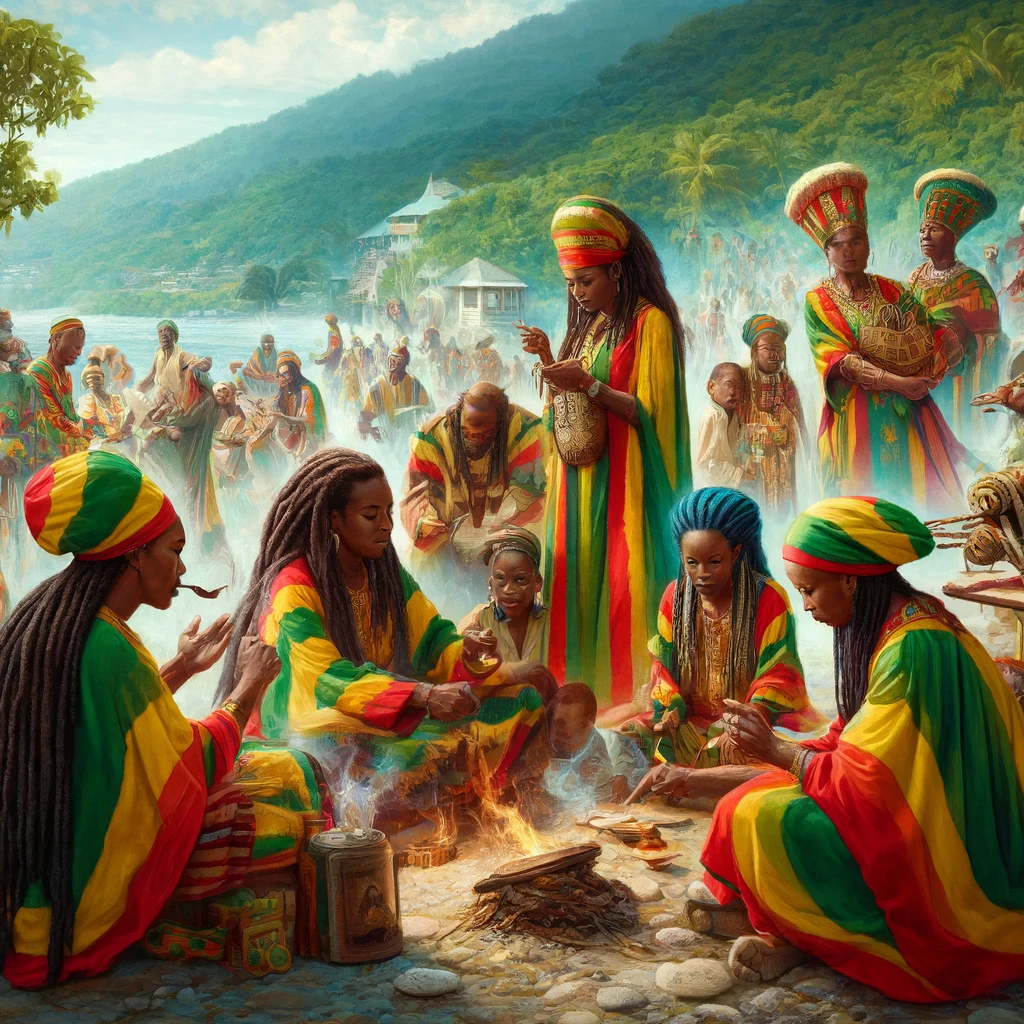Introduction: In the evolving landscape of Rastafari culture, women, often referred to as “Queens,” are playing increasingly significant roles. While traditionally, the movement has been male-dominated, modern Rastafari women are breaking barriers, taking on leadership roles, and contributing to the community in profound ways. Let’s explore the important contributions of women in modern Rastafari culture.
Historical Context: Historically, Rastafari culture has been patriarchal, with limited roles for women. However, over time, the contributions of women have become more recognized and valued. The strength and resilience of Rastafari women have always been a driving force within the movement, even if not always prominently highlighted.
Leadership and Activism: Today’s Rastafari women are stepping into leadership roles within their communities. They are active in social justice movements, environmental activism, and community organizing. Queens are advocating for human rights, gender equality, and the protection of natural resources. Their leadership is vital in pushing forward the movement’s goals and values.
Spiritual Contributions: Rastafari women are deeply involved in the spiritual life of the community. They participate in rituals, lead prayer sessions, and engage in spiritual teachings. Many women are also herbalists and healers, using their knowledge of natural medicine to support the health and well-being of their communities. Their spiritual contributions are essential in maintaining the cultural and religious practices of Rastafari.
Cultural Preservation and Education: Modern Rastafari women are also playing a crucial role in preserving and passing down cultural traditions. They educate the younger generation about the history, values, and practices of Rastafari. Through storytelling, music, and art, they keep the culture alive and vibrant. Queens are also increasingly visible in the arts, creating powerful works that reflect their heritage and experiences.
Challenges and Triumphs: Despite their significant contributions, Rastafari women continue to face challenges such as gender discrimination and limited representation in certain areas. However, their resilience and determination are driving change within the movement. The progress made in recent years is a testament to their strength and the growing recognition of their importance.
Closing Thoughts: The role of women in modern Rastafari culture is evolving and expanding. Queens are leaders, activists, spiritual guides, and cultural custodians. Their contributions are vital to the growth and sustainability of the Rastafari movement. By embracing and supporting the roles of women, the community is enriched and empowered, ensuring that the principles of peace, love, and unity continue to thrive.

